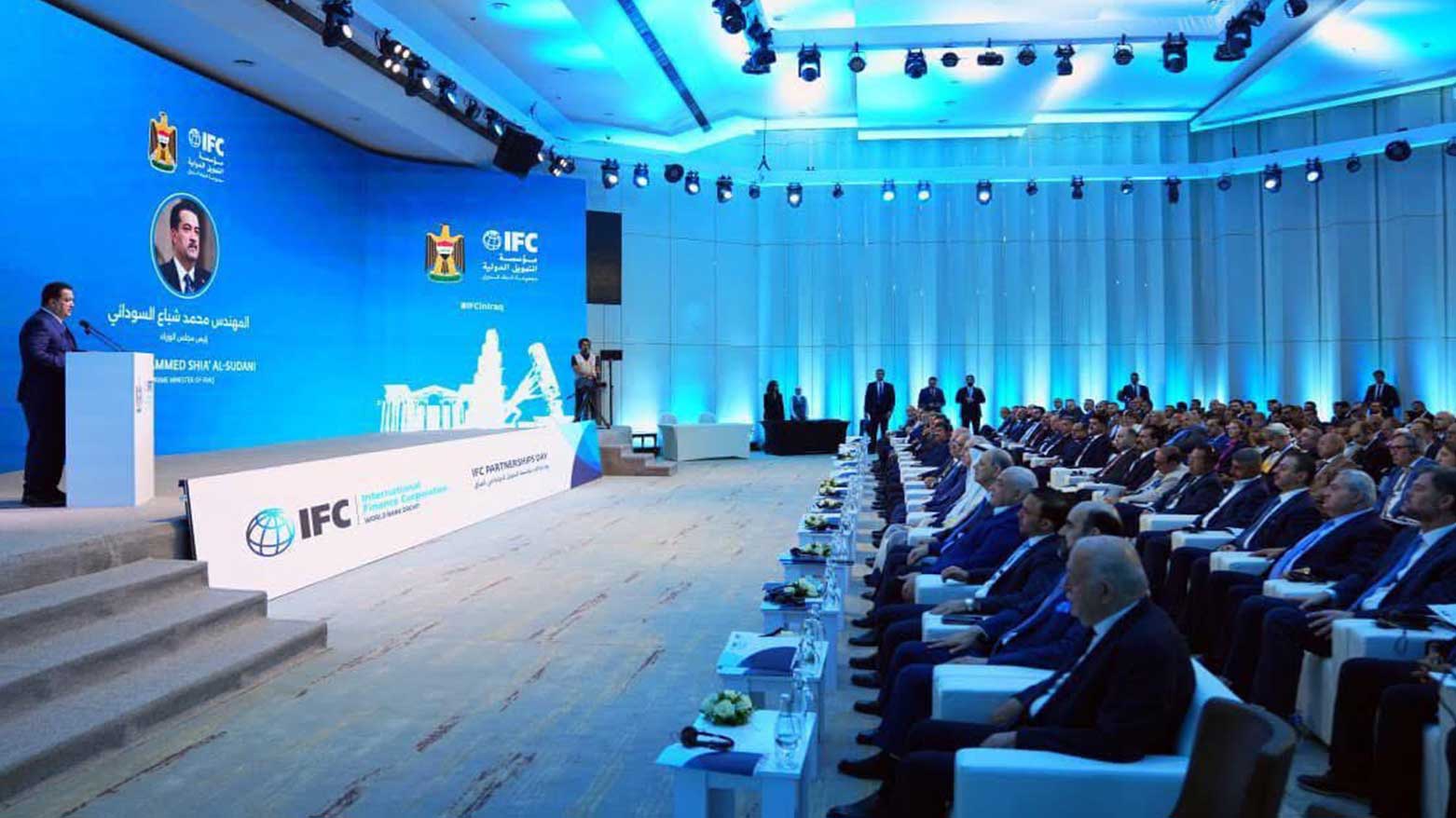Iraq Signs $1 Billion Investment Deals with World Bank’s IFC Amid Deep-Rooted Corruption Challenges
As Baghdad touts $1 billion in IFC-backed investments, the Kurdistan Region remains sidelined, highlighting persistent federal neglect, stalled revenue-sharing, and the continuing economic squeeze on Erbil.

ERBIL (Kurdistan24) — Iraq on Saturday signed a series of new investment agreements worth $1 billion with the International Finance Corporation (IFC), the private sector arm of the World Bank, aimed at boosting energy, agriculture, infrastructure, and financial development.
The deals were unveiled during a ceremony in Baghdad marking the IFC’s 20th year of operations in Iraq, attended by Prime Minister Mohammed Shia al-Sudani, senior officials, and business representatives.
In a statement, the IFC announced commitments of “$1 billion in new investments and engagements in energy, infrastructure, agribusiness, and finance.” Sudani, in his remarks, claimed that attracting foreign capital had contributed to “supporting Iraq’s economic stability” and praised the role of the private sector for carrying out projects “despite bureaucratic issues, corruption, and security challenges.”
According to Sudani’s office, the agreements include a $500 million contract focused on associated gas recovery and the construction of gas facilities in Basra province, where large volumes of natural gas are routinely flared during oil production.
Economic Hopes Amid a Fragile Recovery
Oil-rich Iraq has long attempted to diversify its economy beyond hydrocarbons and repair its war-torn infrastructure. The government hopes to build on the relative stability of recent years to attract international investment and revitalize non-oil sectors, particularly agriculture and financial services.
The IFC, based in Washington, has been active in Iraq since 2005, during the height of the conflict that followed the U.S.-led liberation operation. Since then, it has invested and mobilized more than $2.5 billion for projects across the country.
Despite these efforts, Iraq’s economic transformation has been slow. The International Monetary Fund recently noted that Iraq’s “non-oil economic growth has been slow, constrained by low productivity, limited investment, and an inefficient use of human capital.”
Corruption and Mismanagement Still Haunt Progress
Yet beneath the headlines of billion-dollar contracts, Iraq remains plagued by systemic corruption and chronic mismanagement that have derailed countless projects in the past.
Billions of dollars in public funds have been siphoned off through graft schemes, leaving basic services such as electricity, water, and healthcare in shambles.
Transparency International consistently ranks Iraq among the most corrupt countries in the world, while watchdog groups have documented how political elites treat ministries and contracts as fiefdoms to enrich allies and entrench power.
Even Sudani himself acknowledged during the ceremony that projects continue despite “bureaucratic issues and corruption,” a rare admission from a sitting prime minister.
Critics warn that without genuine reforms, new IFC investments risk being entangled in the same web of inefficiency, patronage, and rent-seeking that has long stunted Iraq’s economic potential.
While Baghdad touts stability and progress, many Iraqis remain skeptical, recalling decades of broken promises where international funds were squandered, leaving ordinary citizens to endure failing infrastructure, unemployment, and poor services.
For Iraq, Saturday’s deals may signal optimism on paper, but the country’s entrenched corruption remains the greatest obstacle to turning foreign investment into tangible improvements for its people.
Baghdad Celebrates IFC Funds While Kurdistan Region Misses Out
Despite the celebratory rhetoric in Baghdad, there is no public evidence that any portion of the newly announced IFC package will be passed on to the Kurdistan Region by the federal government.
The largest and most visible components signed on Saturday — the $500 million agreement with Basrah Gas and port and container-handling investments — are tied to southern federal companies and Iraq’s central institutions, not to KRG ministries.
Local and international coverage of the signing lists federal partners and southern projects; none reports a federal commitment to re-route part of the IFC money to Erbil or Sulaimani.
That omission matters because the KRG has long relied on a mix of direct international finance and disputed federal transfers to cover public salaries and services. International financial institutions, including the World Bank and IFC, have negotiated separate programs directly with regional authorities — evidence that foreign lenders often prefer direct, ring-fenced arrangements with Erbil rather than relying on Baghdad to pass funds down the chain.
The gap between international pledges and federal redistribution underscores a deeper problem: Kurdish citizens cannot depend on Baghdad to share the benefits of newly mobilized international capital.
While Baghdad celebrates billion-dollar deals on paper, the Kurdistan Region remains sidelined, highlighting once again that promises of national recovery often bypass Erbil, leaving its citizens to navigate the consequences of a federal system that too often favors politics over equity.